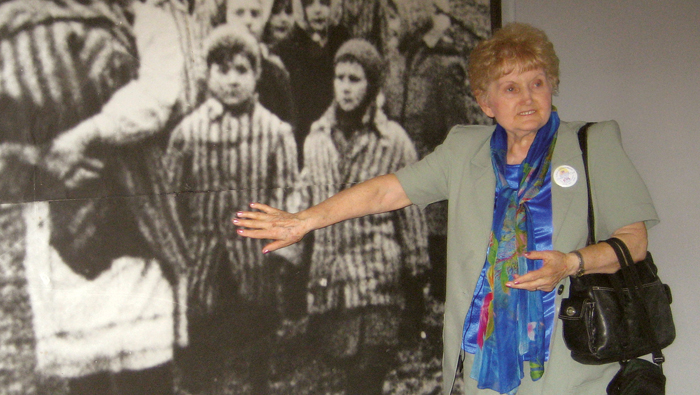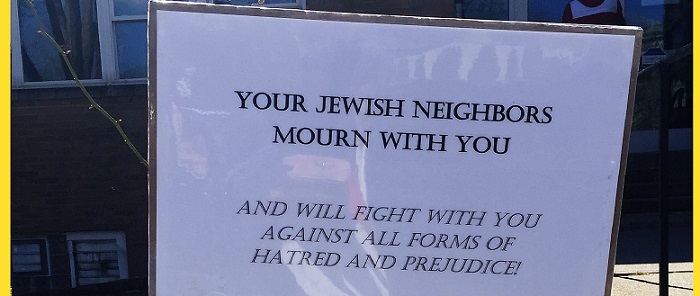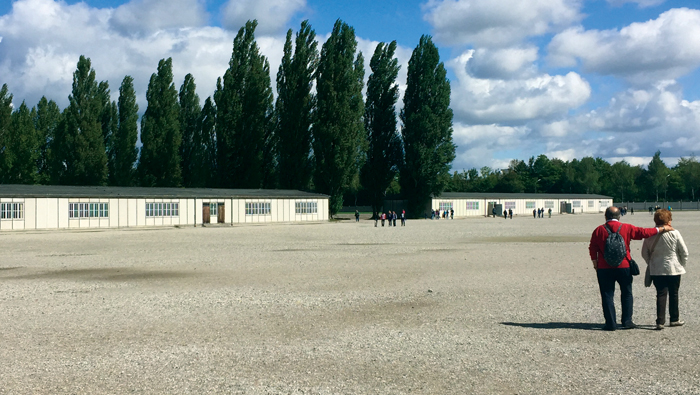
Eva Mozes Kor’s upcoming talk may be among her last. Like other survivors, she is growing old, and despite unflinching resolve to keep the story alive, a demanding schedule becomes hard to keep.
Still, as part of Oregon State University’s 30th annual Holocaust Memorial Week, Eva will discuss her experience. Unlike the rest of her family, she and her identical twin sister escaped the gas chamber so that Dr. Josef Mengele could perform his notorious experiments on them as part of his twin studies.
“Among the most appalling elements in the Holocaust were the human experiments,” says Professor Paul Kopperman, who has chaired the Holocaust Memorial program since 1993. “Many of Mengele’s victims were children, including Eva and her sister. After liberation she moved to Israel and then to Indiana. Eva has done so much to advocate for Holocaust education. She’s also noteworthy for her campaign to forgive those who did her harm. She has a wide following among peace activists.”
Since 1987, Holocaust Memorial Week has brought speakers like Eva Mozes Kor to Oregon. Founded by OSU Provost Dr. Graham Spanier and his assistant, Dr. Miriam Orzech, in response to limited knowledge about the Holocaust on campus, the program coincides with Days of Remembrance of Victims of the Holocaust, the weeklong observance created by a 1979 Act of Congress. Paul Kopperman has been a charter member of the organization.
“It’s been fantastic to watch the program grow and broaden,” says Paul. “We sponsor at least four evening and afternoon events and a daylong student-led symposium.”
The events, which are held both on and off campus, are free and open to the community. Past speakers have included survivors, playwrights, anti-Nazi resisters and experts on German culture.
Additional 2016 events include a discussion led by Scott Straus, author of The Order of Genocide: Race, Power and War in Rwanda.
“He’ll talk about what tends to cause genocide, what can be done to reduce the likelihood of genocide and whether forgiveness works,” Paul says, referring to speaker Eva Mozes Kor’s forgiveness campaign. Rwandan victims and perpetrators meet at reconciliation panels where perpetrators acknowledge their role and the enormity of what they’ve done. “Is this effective?” Paul says. “Are there strategies that seem to limit genocide? Strauss will discuss this.”
The public is also invited to the annual daylong student program where themes on poverty and social justice are discussed. This year’s issues involve migration, borders, and the marginalization of migrants and minorities.
Like all Holocaust Memorial Week programs, this year’s topics and speakers emphasize how people can change. “We like to empower the audience and not leave them feeling hopeless,” Paul says. “It raises the overall question of how to make and preserve peace, even in the wake of a catastrophe like the Holocaust. It’s up to parents and teachers to make sure that young people can participate. Can we limit the threat of future episodes of genocide? The past need not be the present.”
OSU’s Holocaust Memorial Week program runs May 1 through May 5. On May 1, at 4 PM, Eva Mozes Kor will speak on The Triumph of the Human Spirit: From Auschwitz to Forgiveness at Congregation Beth Israel in Portland. Other events are on the OSU campus including the May 2 repeat of Eva’s talk.
Visit holocaust.oregonstate.edu for up-to-date schedules. Overnight accommodation that is within walking distance of the OSU campus and most events is available at the Hilton Garden Inn; phone 541-752-5000.





